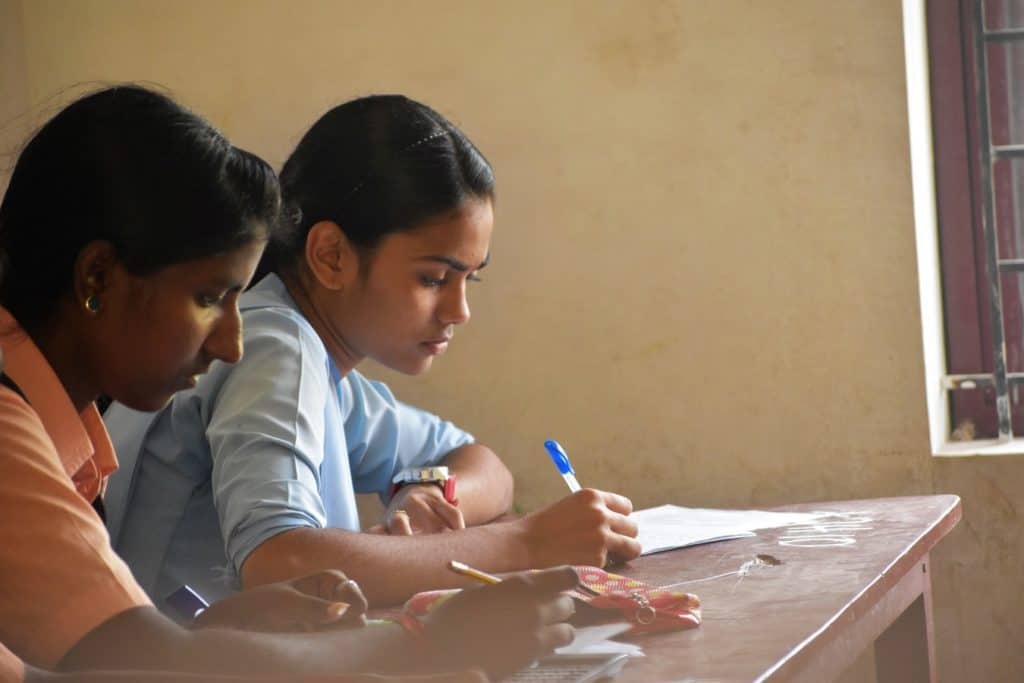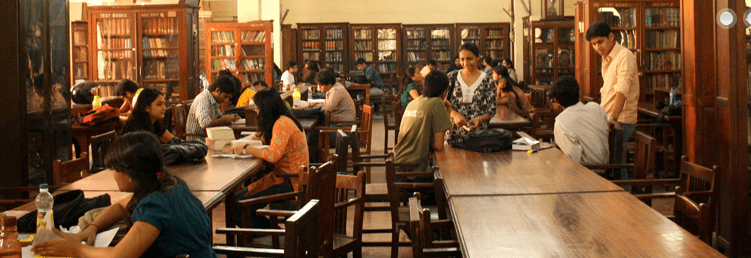The pandemic has had a crushing impact on the educational framework of the country in various ways. One of the fall-outs has been the cancellation of Class XII (and Class X) final examinations by all the major boards of education in the country, in view of the aggressive second wave of COVID-19. However, under the said circumstances, each has come out with a different model of evaluation for Class XII students.
The results of Tamil Nadu State Board Class XII were declared on June 19, 2021. For the first time ever, students got their results on their registered mobile number, without appearing for the board examinations! All 8,16,473 registered Class XII students were declared pass under the weightage system adopted after cancellation of board exams this year with a majority of the students getting more than 60% marks.
More than 33000 students who had arrears (papers they had not passed in earlier exams but could reappear later) were also promoted. Students not satisfied with these results have an option to write the exam to be held in September/October.
The Council for Indian School Certificate Examinations, or CISCE, declared the ISC Class 12 results on July 24th, announcing an overall pass percentage of 99.76% for ISC results on the basis of marks imputed. At the time that this article was readied for publication, students studying in Class XII in schools affiliated to the Central Board of Secondary Education (CBSE) were still awaiting the final declaration of results, though the special method of evaluation in the absence of any examinations had already been explained earlier.
| Name of Board | Evaluation Criteria |
|---|---|
| Tamil Nadu State Board / Matriculation | 50:20:30 formula based on Class X, X1 and XII results (practical exams and internals) respectively In class XII, 20% weight will be assigned to practical exams and 10% for internals. In subjects that do not have a practical component, 10% for internals will be extrapolated to 30%. For Class XII students, who did not take up practical exams owing to COVID-19, the class X1 practical exam marks will be taken into consideration. If they haven’t written either the class 12 or class 11 practical exams, the marks they have scored in written exams through class 10 and 11 will be taken into consideration for awarding marks. For students who haven’t cleared or written class XI exams, the government has asked for 35 marks to be awarded for each subject since it would not be possible for those students to take up the exams again. If a student has not taken up any exam, either written or practical, they will be given the opportunity to write the exam as a private candidate. Students who are unhappy with their results based on these evaluation criteria and private candidates can take the Board exams at a later date, to be announced, and the marks they score in that exam will be considered as final. |
| CBSE | 40:30:30 formula based on Class XII, XI, and X results respectively Scores obtained in theory of each subject will be computed using 40% from pre-boards or mid-term marks, 30% from Class XI finals and 30% from Class X board exam marks. This will be added to the actual marks they got in their Class XII internal assessments and practicals for that subject. Class XI marks in respective subjects from year-end final theory exams in 2019-2020 will be considered. From Class X, the average of theory marks of the three main subjects in which the student recorded the best performance will be taken. This average will be uniformly awarded to all Class XII subjects. CBSE will conduct improvement exam for students not satisfied with marks based on the evaluation criteria from August 15th to September 15th, dates depending on the pandemic situation. |
| CISCE (ISC) | The average marks of papers/subjects scored by candidates in various tests/exams conducted by the school in classes XI and XII through the academic years 2019-20 and 2020-21 respectively will be considered (in percentage form, that is out of 100). The class X average marks (English + best four subjects) will be considered for only those candidates who had passed Class X from examination boards other than the CISCE (since the class 10 average marks for candidates who had passed class 10 from CISCE are already available with the board.) The marks for the project work and ISC year 2021 practical examination. Students not satisfied with the assessment scheme will have the option to appear for written examination in one or more subjects. The exam will be held after the declaration of results and whenever the situation is conducive. |
| IGCSE Cambridge | School-assessed grades using student work based on three assignments will be considered.To assess this grade, schools should identify a portfolio of three substantial pieces of work from each student in every syllabus. Schools to share details of the internal quality assurance processes they followed while collating portfolios of student work, and when submitting assessed grades. Cambridge International will also carry out external quality assurance checks on grades. The types of work to be included among the three pieces of work are left to the school’s discretion: – Completed past papers from the syllabus (> 1 Hour duration) – Completed coursework based on syllabus requirement – Work based on questions selected past papers – Mock exams papers, Project work – Essays, assignments, problems, practical tasks. |
How fair are these evaluation criteria of different Boards?
Students reacted differently to the evaluation model adopted by different boards.
A Tamil Nadu state board student, Sindhuja who passed Class XII with Commerce and Computer Application from Sarada Vidyalaya Model Girls’ School, T Nagar is not very happy with the Board results. “I would have scored better marks had I appeared for the exams,” she says woefully, “I had not performed well in Class X, but they are taking 50% marks from there. My performance in Class XI was better, but that gets only 20%. As for Class XII, had we attended school, we would have been better prepared.”
Arun Kumar passed out of Oxford Matriculation Higher Secondary School, also under the state board, with commerce and computer application. He feels the tabulation is not fair. “I had prepared well for accounts and commerce subjects. Considering that, I have got lesser marks than expected.” He feels it would have been better if the exams had been conducted since he had not performed well in Class 10.

Representational image by F Muhammad/Pixabay
Varun Joshua passed Class XII from Don Bosco Matriculation School, Egmore, with commerce and computer application too. He has a more practical view about the entire scenario: “Physical classes are always better, and you can concentrate and assimilate better if you have a teacher physically present to explain and clarify your doubts. We were not able to concentrate during online classes, because often, the ambience at home was not conducive.”
Varun says that some students switched off their cameras and copied during online tests conducted for Class XII. He advocates use of technology available in some platforms today (such as Eklavvya, Merit Trac, and Turnitin) that prevent malpractices during online exams. Such software is secure, reliable and prevents any type of malpractice. Varun feels that the option of taking improvement exams later will be redundant, because colleges and universities are anyway conducting admissions based on performance in entrance exams.
For Class XII students in CBSE schools, the evaluation model is different. Kevin Joe Thomas, passing out of St. John’s English School and Junior College, Besant Nagar says that the evaluation model is not fair to all students, especially because most students of Class XI prepare only to move on to Class XII and not to excel. So sudden evaluation based on past performances for students who put in a lot of hard work during the last three months before the boards, is unfair to them.
Read more: Opinion: The new CBSE Class 12 evaluation system is at best a make-shift arrangement
His mother and dentist, Lovely Anne Vinoliya, also feels that even good students take the Class XI final exams casually and end up scoring only 70-80%. She is aware that a few students copied and got better marks. So students who worked hard but did not score high marks would be adversely affected during college admissions.
Syeda Rabia from St. John’s Besant Nagar is trying for NEET. She would have taken the offline exam as well because her X1th standard performance is not satisfactory. However, Syeda now has more time to prepare for NEET since the exams have been cancelled
Her mother, Shamila Fazeleeth, a Montessori-trained teacher, concurs with Syeda, “Not having the board exams this time has been a great disappointment. But it is a lesson for all students and teachers that students should be prepared for the X1th standard syllabus also very well, which will come in handy not only during times like these, but also when they are preparing for NEET.”
Read more: As the world fights a pandemic, IIT-NEET-CLAT aspirants in limbo
Schools caught by surprise
Olcott Memorial Higher Secondary School has 100% pass this year with an average of over 70% in most subjects. With over 28 years in CBSE schools, including a stint as the Principal of an eminent CBSE school in Chennai, Sasikala Sriram joined Olcott after retirement as the Honorary Academic Director and has been with the school for five years. She says that her children were prepared well for the board exams though, given the situation, cancellation was the best option by the state government considering the safety of the children.
Sasikala says that the evaluation criteria by the Tamil Nadu state government is beneficial for rural and underprivileged urban children who do not have infrastructural facilities for online learning. Even the teachers there do not have facilities to teach. Sasikala feels teachers evaluating children have to take the new evaluation process as a part of their job and overlook the sudden demand on their time and commitment.
“The pandemic has taught us all the importance of consistent learning through continuous assessment; this will improve teaching-learning outcomes rather than sudden spurts of intense preparations for the boards,” says Sasikala Sriram. Sundeep Vasu, Director of Vedanta Academy (CBSE K- 12) avers, saying, “We only faced an issue because we were caught unprepared with the new process, as it was sudden.”
Gayathri Iyer, Principal, Shraddha Children’s Academy (CBSE) is of the opinion that if schools maintain a systematic record of their students’ performance, sudden announcement of the evaluation process for Class XII would not create problems. She feels that the CBSE model of evaluation is fair and fool proof, considering that only the three best performances of the students in the unit tests and pre-boards are taken.

Representational image from PXHere/CC0
A new route for 2022
Gayathri, however, is a little concerned about students losing practice in long form writing, if CBSE ushers in the new model of two examinations a year for Class XII students, with the first exam being entirely based on multiple choice questions (MCQ). This concern arises from CBSE’s recent announcement that it will hold two board exams or term-end exams for the class of 2022 batch.
Each of the exams will be held on 50 per cent of the syllabus. The term I will be held in November-December while the term II will be conducted in March-April, with the first testing students only on MCQ and Assertion-Reasoning type of questions. The final exam will have a combination of both subjective writing and MCQ.
Sundeep appreciates the new evaluation model of exams twice a year, mooted by CBSE for the batches of 2022 and feels it is a progressive move. Students who have not performed well in one exam can improve themselves the second time. For underprivileged children who are beset with innumerable family problems and financial troubles, it will offer them a second chance to do better. This will also instil the practice of consistent performance throughout the year. Evaluating children once a year places a huge stress on them.
College admissions and the way forward
Colleges in Tamil Nadu have had to change their strategies for admissions. While private colleges and universities have gone the entrance examination way, Class XII students this year can apply for arts and science and engineering admissions online from July 26th. For the 143 government arts and science colleges in TN, the directorate of collegiate education may conduct centralised admission and prepare a rank list for each course. Individual colleges will fill up seats based on the rank list.
Varun Joshua feels that those who take the written exam to be conducted in August/September have better chances of admission to colleges than those who do not because, colleges would tend to prefer those who actually wrote their Board exams.
Read more: As colleges embrace virtual education, how are professors and students coping?
According to Arun Kumar, students who got better marks than they deserved because of the moderation of the state board, will find it difficult when they join college. College admissions should be made on the basis of entrance exams or taking only the relevant subject marks into consideration to enable really good students to get admission.
Many colleges also feel that admitting students on the basis of marks awarded by the Boards post moderation is indeed a matter of concern. To bridge the learning gap, Chennai city colleges like D G Vaishnav, Loyola College, Madras Christian College, and Guru Nanak College are therefore planning a two-week bridge course, both for freshers and for existing students. Women’s Christian College is planning a one-week bridge course.
According to Sundeep Vasu of Vedanta, both the departments of higher education as well as the higher secondary schools should work closely to ensure seamless transition of students to colleges after the introduction of the new two-exam model in Class XII.

International schools
Students from IGCSE schools try for admission to undergraduate courses in countries like the UK, Canada etc. They obtain either conditional or unconditional offers from universities based on their past performances.
Anjana Devi’s* son finished Class XII from IGCSE Cambridge, which also cancelled Class 12 exams and required three assignment proofs to be assessed for each child in all subjects. Different schools of IGCSE handled this differently. Some schools gave three new assignments and graded children on that, ensuring that they got above 90%.
Some other schools used two earlier assignments and gave one new assignment for assessing. Anjana’s son’s school took assignments of December, which the children were not even serious about and many children ended up getting low marks. “I think CBSE and ICSE evaluation models of assessment are far better than that of IGCSE,” says Anjana.
According to Anjana Devi, due to different methods of assessment by different IGCSE schools, some students who had obtained low marks could not make the cut in foreign universities this year. They have decided to take a gap year and repeat the exams next year, which has been a huge source of stress for them.
Her son received a conditional offer based on the good marks he had obtained in the 10th standard, in a university in Canada. Since he could not meet the cut-off due this year to this assessment model, he now has to do two pre-requisite courses to secure the Letter of Acceptance.
In the final analysis, as Lovely Anne Vinoliya says, given the pandemic situation, if some criterion has to be in place, so be it. For some like Syeda Rabia it has been a compromise, for others who have scored more than they expected, it has been a good race.